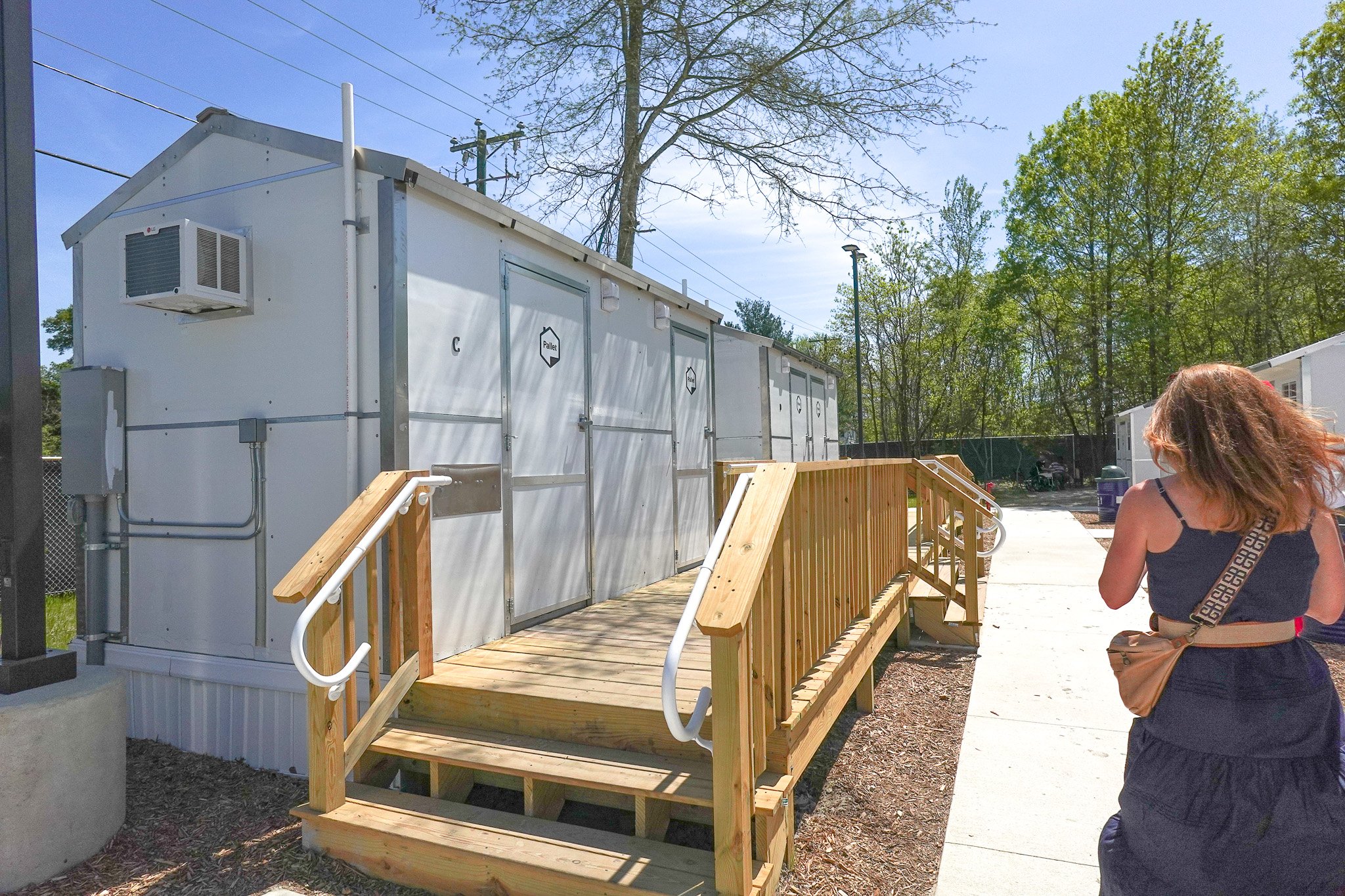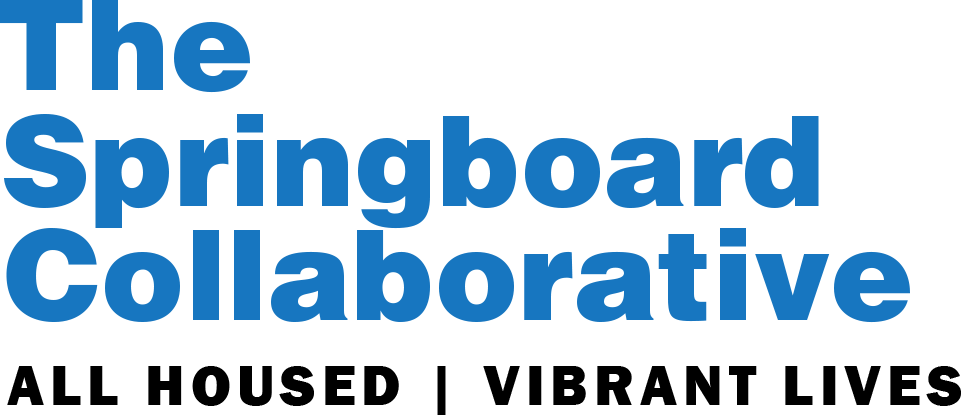THE SPRINGBOARD VILLAGE
The Springboard Collaborative opened the Springboard Village in Georgetown, DE, in 2023.
Springboard Villages stabilizes and engages those experiencing unsheltered homelessness and economic hardship throughout Delaware. These dignified cabin dwellings provide a safe, comfortable stepping-stone on the path to lasting housing. Each village connects participants to coordinated care and resources. The cabin villages can be deployed swiftly and economically, helping people out of the woods/off the streets and on the path to building a better, self-sufficient life.
This framework considers the seven vital conditions that all people need to be healthy and well. Evidence demonstrates that people are more likely to embrace and effectively utilize wrap-around services after they are in a secure and supportive setting.






Springboard Pallet Homes
Dignified cabins with privacy, security, and a lockable door.
The personal autonomy of participants is uplifted and respected.
Cabins
Heat and A/C
1-2 beds and storage in each unit
Partners may room together
Pets are welcome
Secure storage is provided
Village
Separate facility for showers & restrooms
Central facility for food service and offices
Fenced and monitored by on-site security
Connection to coordinated care and services
The village consists of 40 individual sleeping cabins and is located on the property of the First State Community Action Agency behind their Georgetown headquarters.
Springboard homes are dignified cabins with privacy, security and a lockable door. In the village, the personal autonomy of participants is uplifted and respected across all policies and procedures.
EARLY RESULTS
Participants in the Springboard Pallet Village are evaluated every three months and empowered to make tangible progress toward their personal health, housing, education, employment, and self-sufficiency goals*
Since the Village opened on January 31st, 2023, we have served 97 individuals.
24
have been permanently housed, four of whom were reunited with family.
34
have been connected with a Medical Provider
65
have begun treatment for Substance Use Disorder, mental health, or dual diagnosis.
36
have made progress towards employment goals either by enrolling in training programs, GED classes or finding employment.

